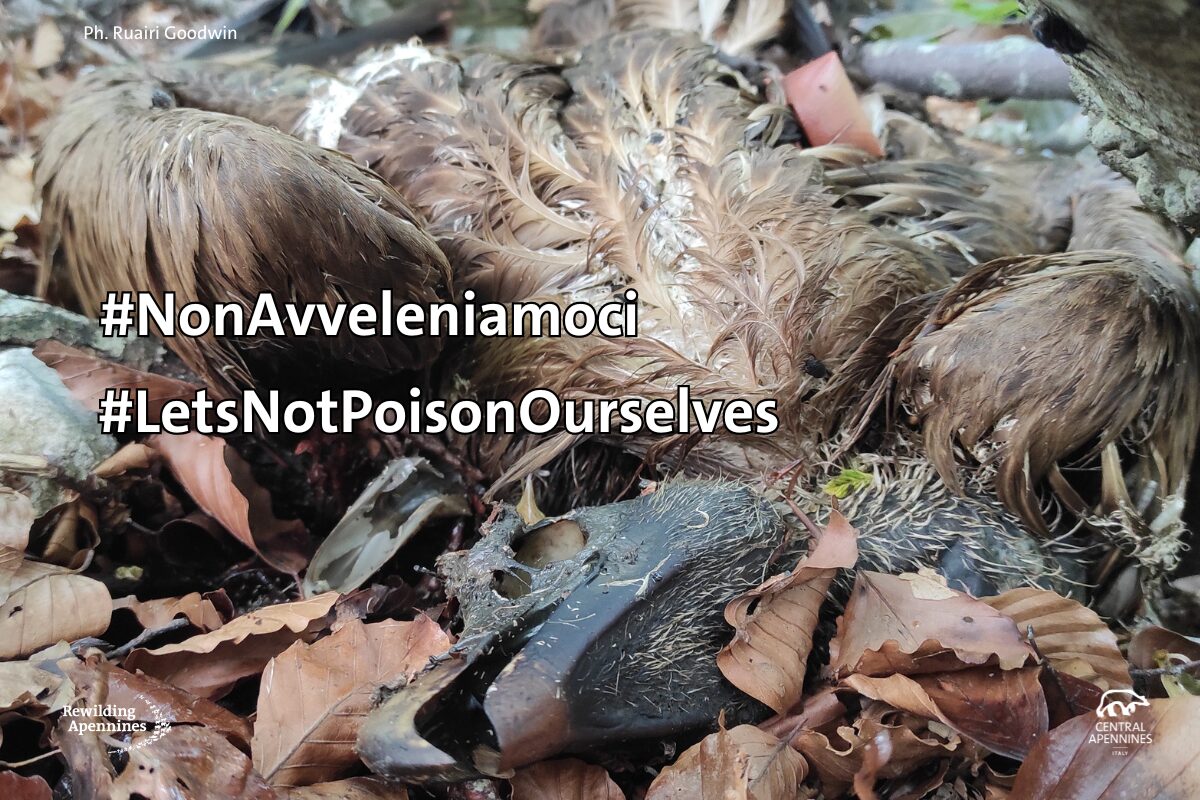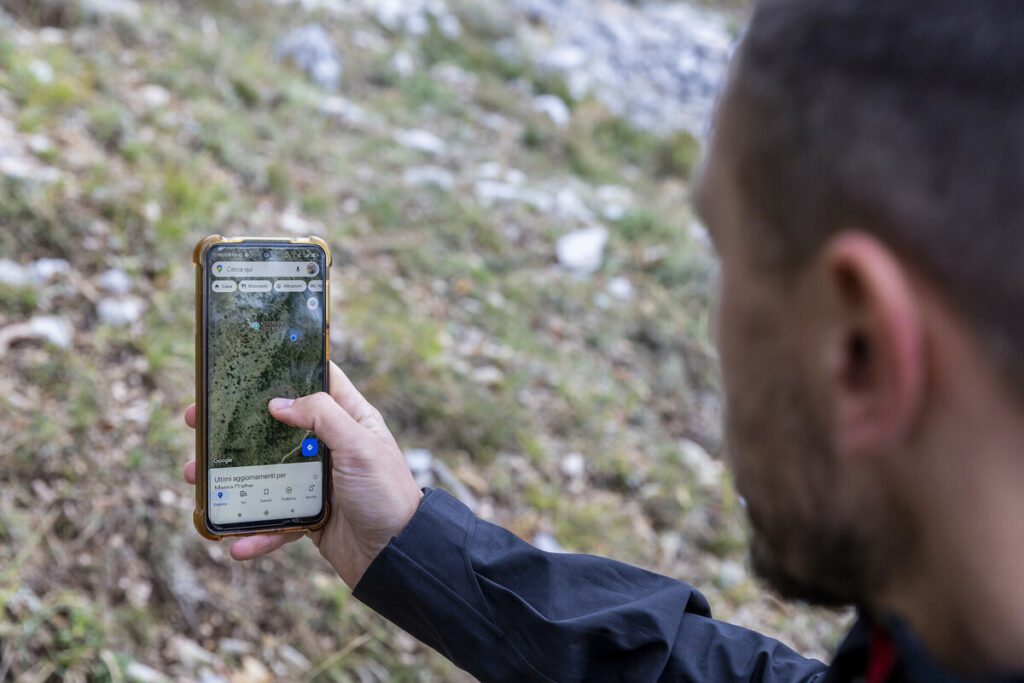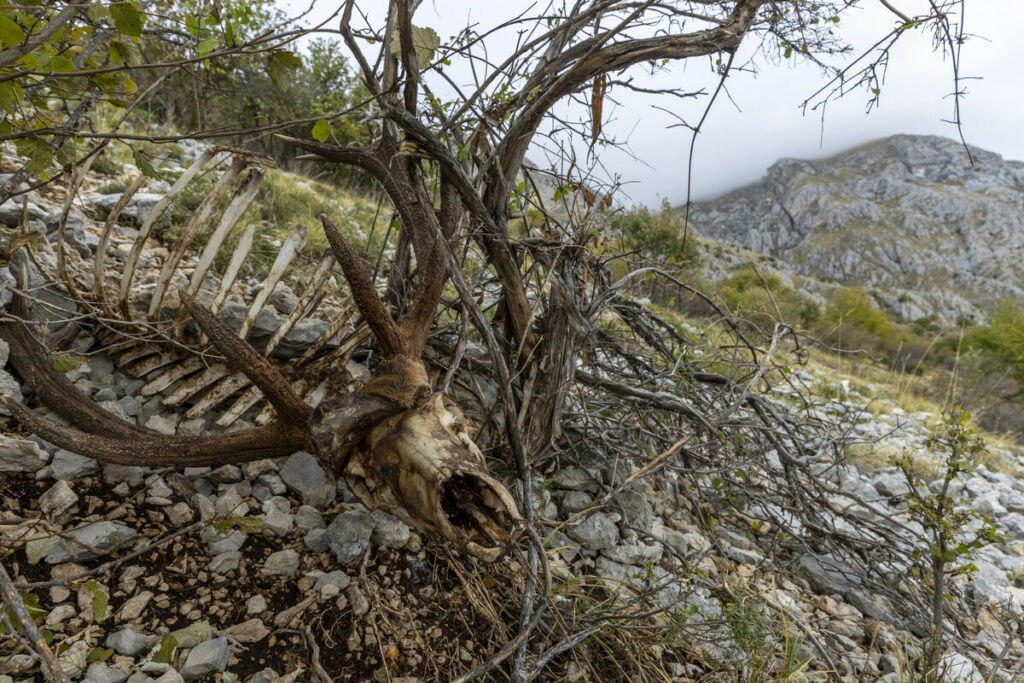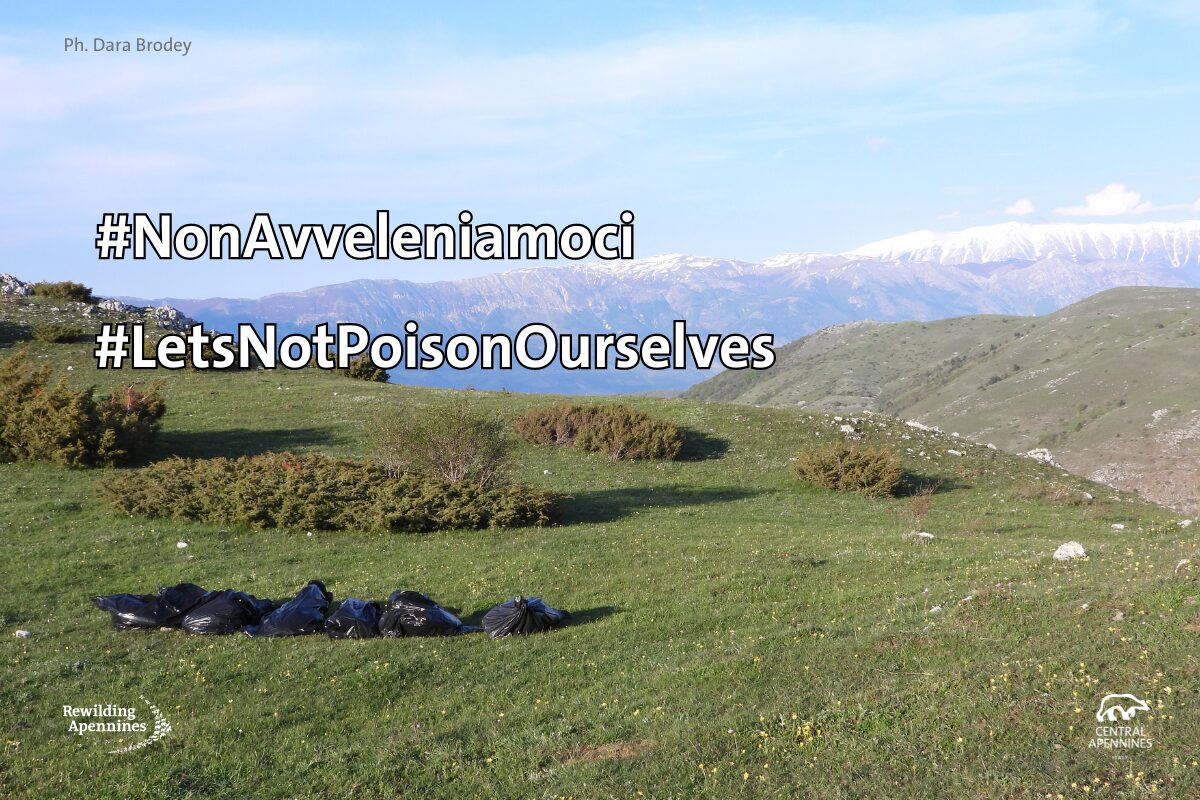3 griffon vultures and 1 fox dead close to a sheep carcass. In all likelihood, this is yet another case of wildlife poisoning, the first detected in 2024 in the Central Apennines.

A new episode
It is 22 March when the GPS signal of 2 of the 63 griffon vultures equipped with satellite transmitters suggests that there is a problem. They have been stationary for too many hours. Something is wrong. We need to check on the spot.
We are in Atina, in the province of Frosinone, on Monte Prato, already the scene of three probable poisoning incidents last year, when six griffon vultures were found dead.
The Rewilding Apennines team promptly alerted the Carabinieri Biodiversity Department of Castel di Sangro, co-responsible for monitoring this population, and the Atina Carabinieri Forestry Unit, responsible for the area.

At the time of the inspection, the surprise of the Forestry Carabinieri of the Atina Unit was not as great as their dismay at what they found. A scene seen all too often: the two lifeless young griffons and, a short distance away, a sheep carcass.
What was a suspicion is increasingly turning into a real possibility. The area must now be thoroughly searched for any other victims and possible bait. The Forestry Carabinieri and Rewilding Apennines operators are preparing for a patrol. With them is also the Anti-poison Dog Unit of the Carabinieri Park Unit of Villetta Barrea.
When a poisoned griffon vulture is found dead, the number of “unknown” victims almost always increases. Without going too far back in time, one remembers the very serious case that occurred in Cocullo in the spring of last year, when nine wolves, five griffon vultures and two common ravens were found dead within 10 days. This also means that, while it is true that griffon vultures with GPS are “sentinels” thanks to which many of these illegal acts are discovered, it is also true that they represent only the “tip of the iceberg” of a practice that has a much broader scope.
The patrol in this case led to the discovery of one fox and another griffon vulture without transmitter or other markings.
“Rewilding Apennines has repeatedly denounced the alarming numbers resulting from population monitoring: we speak of at least 36 animals in the last three years – that is, since dozens of vultures have been monitored by satellite transmitters – that have died from poisoning or are suspected of being poisoned.” reports Nicolò Borgianni, Vulture Field Officer of the Association.
Efforts to change course
All this happens in areas where other particularly protected species are present. Marsican brown bears, eagles and wolves are all potential victims of poisoning. The wolf is often the main target of these criminal actions.
The appeal of Rewilding Apennines is that the use of poison is not only of concern to the world of nature conservation, but, firstly, to all citizens who care about the establishment of a culture of legality and, secondly, to all honest people who are directly or indirectly affected by these crimes. Not least the pets.
Last year, Rewilding Apennines, together with 23 other associations, called for more incisive action from the national, regional and local authorities in charge of the environment and judicial police, both for prevention and for intervention and investigation. Too often, in fact, these crimes go unpunished.
“Sentinel” griffons are a valuable aid in the fight against poison. Their constant monitoring has also been providential in averting potential massacres, as happened last June, when the Rewilding Apennines team came across a poisoned carcass near one of the most important griffon vulture breeding colonies, which the vultures were sure to consume shortly afterwards.
Let us remember that these extraordinary vultures perform a very important task in the ecosystem: that of scavengers. Their numerous colonies are able to consume large carcasses in just a few hours, favouring the nutrient cycle and slowing down, or even blocking, the spread of certain infectious diseases that are potentially harmful to animals, including farm animals, and humans. Without their help we would all be living in a less healthy environment.

The “Let’s not poison ourselves” communication campaign
We ask ourselves: is it fair that griffon vultures continue to pay dearly for our inefficiency in dealing with these crimes against biodiversity and the community?
Rewilding Apennines wants to do its part in the face of this serious recurring problem. That is why, in the light of the first detected case of suspected poisoning in 2024, we are launching a communication campaign entitled #LetsNotPoisonOurSelves. The aim is to raise awareness among a wide public about this practice that still shows no sign of abating, especially in certain socio-economic contexts. The chosen title has multiple meanings: let’s not poison our territory, our health and the integrity of the natural resources we rely on, let’s not create antagonism between stakeholders, but promote dialogue and the multiple benefits of nature conservation, let’s avoid defaming our landscape and the communities that inhabit it, on the contrary, let’s commit ourselves to promoting its beauty and richness.
If you share our goals, join the #LetsNotPoisonOurselves campaign and spread these messages, because only together can we bring about cultural change.
